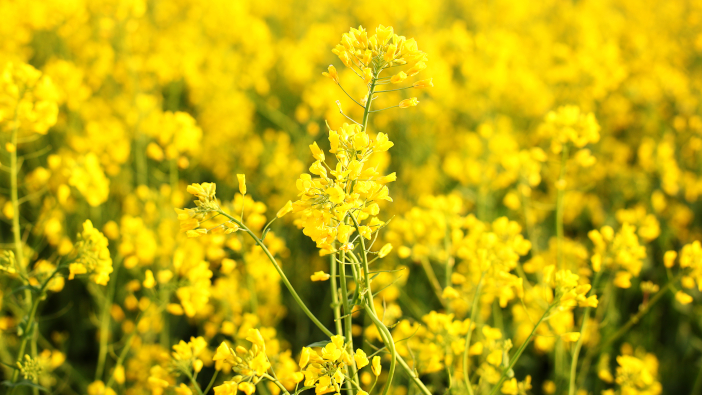A report has shown that policies created by the European Union (EU) encouraged and then undermined the farming of oilseed rape (OSR) as a major biofuel in Europe.
Climate change policies initially rewarded the widespread planting of OSR, however, subsequent pesticide laws led to large yield losses across the continent and therefore a reliance on imported oils. The imported oils include palm oil, which is often responsible for tropical deforestation, and OSR from countries that still use pesticides banned by EU law.
The report’s findings were presented at a meeting of the British Crop Protection Council by lead author, Dr Patricia Ortega-Ramos from Rothamsted Research, who said that the EU’s policy decisions ‘created a serious crop pest.’
The implementation of biofuel policies led to a 78% increase in the area of OSR harvested between 2003 and 2010, with the record harvested area amounting to 6.4 million hectares in 2010.
However, with the increase of OSR grown, the variety of other crops grown and the amount of natural habitat on farms reduced, which led to population growth of the cabbage stem beetle and the pollen beetle, which both feed on OSR.
Farmers increased their use of pesticides to curtail the pests, including pyrethroid, which inevitably led to pesticide resistance arising in the beetles.
The EU then brought in their 2009 Sustainable Use of Pesticides Directive, but this was poorly implemented and led to an outright ban on the use of neonicotinoids as a pesticide.
“The EU’s 2009 Sustainable Use of Pesticides Directive was not well implemented, and as a result of that and subsequent decisions, the cabbage stem flea beetle has now become a serious pest. The area of oilseed rape being grown is now falling sharply, with huge financial consequences for farmers and major environmental consequences for all of us,” said Dr Ortega-Ramos.
The Rothamsted Research report outlined that in the UK in 2014, three-quarters of the national area of OSR crop was affected by adult beetle feeding damage-causing about five per cent crop loss nationally. Of this loss, 62% occurred in eastern regions, with an estimated loss of £13M in this area alone.
As a result of the decline in OSR being grown, and to meet the EU transport targets, imports of palm oil used for biodiesel reached an all-time high in 2020.
Dr Ortega-Ramos said: “It is clear now that the contradictory – even if well-intentioned – policy initiatives led to the development of a serious pest. Perhaps, if the EU’s sustainable pesticide plans had been put into law at the same time as the drive to meet the biofuel target, then the biofuel target would have been reached without relying on imports, and insecticide-resistant beetle populations might not be so widespread.”
Co-author Dr Sam Cook, who leads Rothamsted’s Integrated Pest Management (IPM) research, said reliance on insecticides for crop protection is clearly unsustainable, and that a broad range of management options are required for farmers to be able to combat pests in a sustainable and efficient way.
“There is a need for further research to produce the scientific advances necessary for the development and commercialisation of tools and techniques needed to make this a reality. And, to facilitate the successful adoption of IPM techniques, farmers need to be incentivised to adopt them,” concluded Dr Cook.


